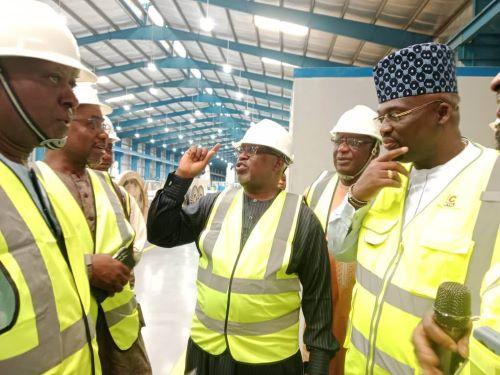Coleman Technical Industries Limited has expressed concern over the recent increase in interest rates by the Central Bank of Nigeria, lamenting that the hike will have a detrimental effect on manufacturers.
Managing Director of the cable manufacturing giant, George Onafowokan, expressed the concern in an interview on Thursday.
Recall that the CBN’s monetary policy committee recently raised interest rates from 24.75 percent to 26.25 percent.
While discussing the impact of the hike on the manufacturing sector, Onafowokan maintained that the increase would lead to higher borrowing costs, which will ultimately raise the cost of funds and manufacturing, bemoaning “this is a worrisome time for manufacturers”.

While acknowledging that raising interest rates is the right move to address inflation and the foreign exchange position, Onafowokan emphasised the need for a balance between the factors.
He pointed out that an increase in interest rates automatically leads to reduced spending, as borrowing becomes more expensive.
Also Read:
- I now know why Gov. Uba has been praising Tinubu — El-Rufai
- Surviving abroad marriage: My observations, by Tunde Asaju
- Why I dumped PDP – Nwoko; We won’t miss him — Commissioner
- Anambra: Three siblings killed, bodies dumped in deep freezer
- Telecom Tariff Hike: NLC suspends planned nationwide protest
“Consequently, inflation is curbed as the demand for goods decreases. Moreover, lower spending power leads to a decline in demand for foreign exchange,” Onafowokan said.
The Coleman boss called for incentives and interventions from the government to stimulate the manufacturing sector, suggesting direct interventions such as adjustments to interest rates or fiscal measures such as reducing certain duties as a relief measure.
These actions, he added, could help mitigate the impact of the interest rate hike.
Despite the challenges faced by manufacturers, Onafowokan is optimistic about the government’s ability to drive positive change.
He acknowledged that things may get worse before they improve, still, he believes in the potential for a stronger currency and economic growth in the future.
Nonetheless, he urged the government to demonstrate empathy and to practice what they preach by implementing measures that alleviate the burden on the private sector.
Onafowokan highlighted the stress and difficulties faced by manufacturers and employers in the current economic climate.
He stressed the importance of government incentives and support to alleviate the burden on the private sector and to drive economic growth.
Ultimately, he is hopeful of a better future, but emphasised the need for patience and tangible actions to back up promises.


